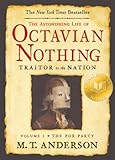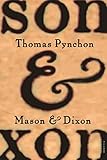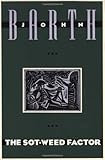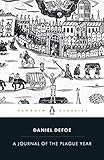 This winter, Millions contributors Emily Colette Wilkinson and Garth Risk Hallberg both happened to pick up the first volume of M.T. Anderson’s The Astonishing Life of Octavian Nothing, Traitor to the Nation. This 2006 novel was a National Book Award winner and a New York Times Bestseller. However, the literary-industrial complex hasn’t given Anderson the attention accorded to similarly ambitious writers – perhaps because his putative audience consists of “young adults.” With Volume II (The Kingdom of the Waves) now out in hardcover, we decided to give Volume I (The Pox Party) the adult consideration we both thought it deserved. Via email, we conducted a bicoastal conversation about Octavian Nothing, which we’ll share with you this week in three installments: Form and Style; Historical and Geographical Setting; and Audience, Character, and Conclusion. In the event that it engages you as it did us, perhaps we’ll follow up with conversations about Volume II, and about other titles. As always, we invite you to join the conversation via the Comments box.
This winter, Millions contributors Emily Colette Wilkinson and Garth Risk Hallberg both happened to pick up the first volume of M.T. Anderson’s The Astonishing Life of Octavian Nothing, Traitor to the Nation. This 2006 novel was a National Book Award winner and a New York Times Bestseller. However, the literary-industrial complex hasn’t given Anderson the attention accorded to similarly ambitious writers – perhaps because his putative audience consists of “young adults.” With Volume II (The Kingdom of the Waves) now out in hardcover, we decided to give Volume I (The Pox Party) the adult consideration we both thought it deserved. Via email, we conducted a bicoastal conversation about Octavian Nothing, which we’ll share with you this week in three installments: Form and Style; Historical and Geographical Setting; and Audience, Character, and Conclusion. In the event that it engages you as it did us, perhaps we’ll follow up with conversations about Volume II, and about other titles. As always, we invite you to join the conversation via the Comments box.
Part 1: Form and Style
Emily: I was worshipfully impressed with this book. The most striking aspect of M.T. Anderson’s novel, to me, was its formal evocation of the eighteenth century, the period in which it is set and is supposed to have been written. Octavian evokes for me the feeling of being in the archives – reading eighteenth-century English and early American newspapers and magazines, private journals, reports from the first generation of scientific societies like London’s Royal Society that rose and flourished throughout Europe in the 17th and 18th Centuries. The form that dominates is the diary or journal. It is propelled mainly by Octavian’s diary-like first-person recollections of his life in the fictional Boston scientific society, The Novanglian College of Lucidity.

 Garth: I’m going to jump in at this point like Smokey Robinson and second your emotion, Emily. Octavian Nothing is one of the best-written – and most challenging – young adult books I’ve ever read. The pastiche of 18th-Century style reminds me more of The Sot-Weed Factor and Mason & Dixon than of, say, J.K. Rowling (Anderson’s direct competitor). I’m tempted to say that it goes beyond pastiche: that it becomes beautiful in its own right. Look at the opening sentences, for example:
Garth: I’m going to jump in at this point like Smokey Robinson and second your emotion, Emily. Octavian Nothing is one of the best-written – and most challenging – young adult books I’ve ever read. The pastiche of 18th-Century style reminds me more of The Sot-Weed Factor and Mason & Dixon than of, say, J.K. Rowling (Anderson’s direct competitor). I’m tempted to say that it goes beyond pastiche: that it becomes beautiful in its own right. Look at the opening sentences, for example:
I was raised in a gaunt house, with a garden; my earliest recollections are of floating lights in the apple-trees. I recall, in the orchard behind the house, orbs of flames rising through the black boughs and branches; they climbed, spiritous, and flickered-out; my mother squeezed my hand with delight.
There are a number of things going on here: lyricism, archaism, and a sophisticated “defamiliarization”; after all, what are these “orbs?”
Emily: Anderson is also extremely adept at manipulating shades of tone. He manages again and again to reproduce the cadences of period writing, but he does not (as one easily might) get bogged down in the (sometimes) tortuous syntax of the age. Look at this, for example:
The two of them dancing could not have presented a more charming scene, turning as they did upon the greensward, with the blue gloaming seeping through the pines behind them and the empty sky above, lit by the frisking fireflies against the black trunks; they could not have performed their steps more elegantly, or spun more sweetly, even when the music sped off to a furious pace, skittering wildly, so that it could not have offered a reasonable beat to any but a raging Corybante dancing horde, drugged and frenzied before rending the flesh of fleeing men.
Here Anderson mimics the complicated grammatical structures so common in the prose of the day, but it is also, as the first sentence was, beautiful. And I admire this not just for its linguistic athleticism and acrobatic capabilities, but because such sentences evoke the style and syntax of Latin and so give a sense of Octavian’s immersion in that lost world, as his own world is lost to us.
Garth: It’s a lost world in which the study of Latin rhetoric, with its ritualized devices (in this case, hyperbole) would have been second nature. Especially to Octavian, who, in the conceit of the book, is the beneficiary of the world’s finest education. Perhaps I should also insert, by way of summary, that when the book opens, young Octavian and his mother are resident in the College. The early going is devoted to Octavian’s intuition that there’s some mysterious difference between himself and the College’s other residents. His gradual discovery of the nature of that difference, and of how he came to be where he is, will precipitate his further adventures. Much of this is done in a first-person voice, which is why the defamiliarization I mentioned earlier is so effective: we see as Octavian sees, and discover as he discovers.
Emily: But the form of the book soon grows more complex.
Garth: Spoiler alert?
Emily: Spoiler alert. Into his diaristic narrative, Anderson begins to patch-work clippings from newspapers (adverts for slave sales and reward notices for run-away slaves) and letters from a variety of characters. While Octavian is called a novel, it is in the strictest sense of the word, a miscellany, one of the defining literary forms of the age in which it is set. Miscellany is the Renaissance and Eighteenth-Century’s period-specific version of pastiche.
Garth: Like that book Schott’s Miscellany from a few years back?
 Emily: Right. A miscellany is a collection of literary productions of various kinds (poems, letters, essays, illustrations) gathered in a single volume, often united thematically rather than formally. Octavian’s mentor in this first volume, Bono, keeps a miscellany filled with newspaper pictures of shackles, razor collars, and iron masks used to silence and punish slaves. And Anderson is making his own sort of miscellany. The different voices and perspectives on Octavian give a richer sense of his character and demeanor, and the many shades of public opinion about slave-holding that jostled against each other in revolutionary America. There are also psalms, maps, diagrams and scientific reports written about Octavian and his mother by members of the Novanglian Society.
Emily: Right. A miscellany is a collection of literary productions of various kinds (poems, letters, essays, illustrations) gathered in a single volume, often united thematically rather than formally. Octavian’s mentor in this first volume, Bono, keeps a miscellany filled with newspaper pictures of shackles, razor collars, and iron masks used to silence and punish slaves. And Anderson is making his own sort of miscellany. The different voices and perspectives on Octavian give a richer sense of his character and demeanor, and the many shades of public opinion about slave-holding that jostled against each other in revolutionary America. There are also psalms, maps, diagrams and scientific reports written about Octavian and his mother by members of the Novanglian Society.
Garth: Here again, Anderson is so committed to his invention – so immersed in it – that it seems to move beyond pastiche. When I got to the psalm (a beautiful lament that I didn’t remember from church), I actually had to look it up to make sure it wasn’t fabricated. In general, Octavian is so well-researched that its factual trappings often fade into the background. Throughout the book, in the diaristic sections and the scientific reports and so on, Anderson inhabits the multifarious 18th Century mind: positivist yet deistically religious; egalitarian yet slave-owning. The contradictions in the language become the animating tensions of the book.
Emily: The scientific reports are particularly chilling and – though I did find myself wondering how many of the readers of Octavian are really young adults – serve as a sort of Dialectic of Enlightenment for those not quite ready for Adorno and Horkheimer’s critique of the Enlightenment deification of rationality and empiricism. Though, is anyone, ever?

 Garth: I was, once upon a time. Like you, I thought of The Dialectic of Enlightenment while reading Octavian – surely a first for a young adult book. Though I should throw in here that a similar philosophical bent and ventriloquistic brilliance animates Anderson’s earlier book, the science fiction novel Feed. (Opening line from the young narrator: “We went to the moon to have fun, but the moon turned out to completely suck.”) Part of what’s amazing about Octavian is that the Adorno/Horkheimer argument, this gnarly Germanic thing that practically makes people bleed from the ears in graduate school, becomes pellucidly clear when dramatized like this. This is not to say that Anderson’s consciously rewriting Adorno. Perhaps the idea that the Enlightenment pushed rationality to the point of irrationality is inherent in the material?
Garth: I was, once upon a time. Like you, I thought of The Dialectic of Enlightenment while reading Octavian – surely a first for a young adult book. Though I should throw in here that a similar philosophical bent and ventriloquistic brilliance animates Anderson’s earlier book, the science fiction novel Feed. (Opening line from the young narrator: “We went to the moon to have fun, but the moon turned out to completely suck.”) Part of what’s amazing about Octavian is that the Adorno/Horkheimer argument, this gnarly Germanic thing that practically makes people bleed from the ears in graduate school, becomes pellucidly clear when dramatized like this. This is not to say that Anderson’s consciously rewriting Adorno. Perhaps the idea that the Enlightenment pushed rationality to the point of irrationality is inherent in the material?
Emily: I think so. “The Advancement of Learning” that began in the seventeenth century in Europe had many victims. I have read horrific Royal Society proceedings that recount “experiments” such as pouring corrosive acids on dogs and lambs to see what happens. They are more horrific for their dryly objective prose. Octavian, more horrifically still, brings this dark side of the Age of Reason to life. If you’ll allow me a final note on Anderson’s interesting and evocative approach to literary form –
Garth: – And I will –
Emily: – I wanted to point out that Anderson’s approach is powerful even if you are not familiar with the forms and foibles of 18th-Century literature – if you’re more familiar with the fractured forms of high Modernism, like Eliot’s The Waste Land, or miscellany’s post-modern cousin (to repeat the term you’ve been using, Garth), pastiche. In the novel’s most jarring formal sequence, Octavian’s first-person voice disappears and is replaced by a succession of letters from a variety of individuals, some barely literate, some fluent in the formal niceties and flattering flourishes of the age. All of a sudden our vision of Octavian is fractured – we’re seeing him and his plight as a runaway slave from myriad, radically different perspectives at once.  I was reminded of As I Lay Dying – of a cognitive dissonance, a deliberately broken, heteroglossic approach to narrative that is much more often associated with modern authors like Joyce and Dos Passos but works remarkably well here. I was also reminded of Daniel Defoe’s A Journal of the Plague Year (1722), another work of historical fiction that uses the fractured effect of miscellany to give a more expansive account of a moment of upheaval. It’s as if some traumas are so profoundly collective that they require a narrator, or a form, that can get beyond the limited view of the first person singular.
I was reminded of As I Lay Dying – of a cognitive dissonance, a deliberately broken, heteroglossic approach to narrative that is much more often associated with modern authors like Joyce and Dos Passos but works remarkably well here. I was also reminded of Daniel Defoe’s A Journal of the Plague Year (1722), another work of historical fiction that uses the fractured effect of miscellany to give a more expansive account of a moment of upheaval. It’s as if some traumas are so profoundly collective that they require a narrator, or a form, that can get beyond the limited view of the first person singular.
Garth: “Heteroglossic.” I am definitely stealing that for future use. And if I can add my own summary note on the form and style of Octavian Nothing: I was basically really taken with – and jealous of – Anderson’s writing. I think he might be some kind of genius. In our next installment, maybe we can talk a bit more about that trauma – about the novel’s historical and geographical setting.








